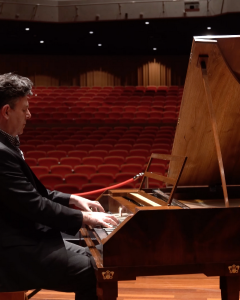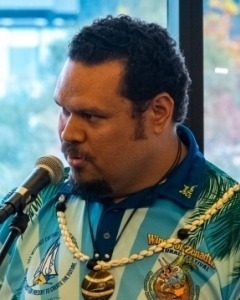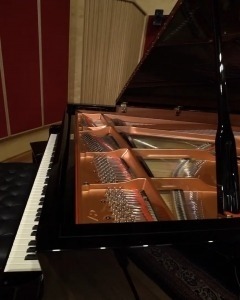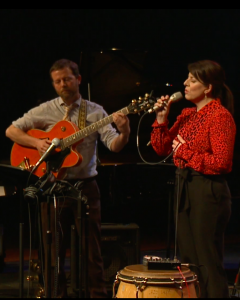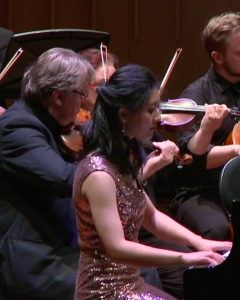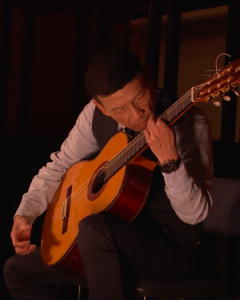Bachelor of Music (Honours)
The Bachelor of Music (Honours) is characterised by the concept of music—be it performance, composition, or musicology — as a research-led process that explores questions relevant to our understanding of
what it means to be human and of who we are.
The core of this program is the sub-thesis, which is focused on the production of a substantial piece of research realised through either performance, composition, a portfolio of work in music technology, or
a 20,000-25,000 word written document. The creative work will be explained verbally through a 5000-word exegesis that explores the creative act as a research process and explains the contribution to
knowledge that the creative act makes.
The intellectual framework within which the sub-thesis will be written is provided by a pair of courses, The Scholar Musician 1 and the Scholar Musician 2, and at least one research methodology course.
The focus of the research will be agreed between the student and the students' supervisor. There are five specialisations available in the program:
Performance
The Performance specialisation is undertaken in both solo and ensemble contexts, however solo recitals may include accompaniment and chamber music where appropriate and as approved. The performance will be accompanied by a written exegesis explaining the creative process.
Composition
The Composition specialisation develops students’ skills, knowledge, creativity and experience in a contemporary context. Taught through studio practice, it leads to a series of works designed according to student needs. The student’s study will be complemented by an individual program which will require relevant written or other documentation as the object of assessment. The portfolio will be accompanied by a written exegesis explaining the creative process.
Composition For Film and Video Games
The Composition for Film and Video Games specialisation provides advanced training in the research principles, methods and theoretical concepts of composition for film and video games. This training is applied through the design and implementation of a research project comprising a portfolio of compositions in written and/or audiovisual format, with an accompanying written exegesis.
Music Technology
The Music Technology specialisation provides a foundation in the principles, methods and theoretical concepts of music technology, applied through the design and implementation of a research project comprising a practice-based portfolio and accompanying exegesis.
Musicology
The Musicology specialisation provides a solid foundation in a wide range of research methodologies, and their application to a major research project.
Teaching and learning activities may include lectures, tutorials, ensembles, master classes, technical workshops and musical activities in the community, including one-to-one tuition. The course supports the development of critical and independent research skills, including research as creative and professional practice, led by staff who are themselves researchers and music practitioners. Student internships with an array of performance companies, production houses, public service departments, and collecting institutions may also be negotiated.
Learning outcomes
Students who graduate from the Bachelor of Music Honours degree will have the knowledge and skills to:
- pose a significant research question relating to music;
- investigate this question creatively, critically, ethically, and independently, including through sophisticated use of appropriate theory and methodology as appropriate to music, and place these
investigations in the context of the relevant intellectual tradition, and; - communicate their research and its findings through an appropriate medium.
Admission requirements
Entry requires:
- The completion of a Bachelor of Music degree (or equivalent) completed within the last two years, with a distinction average in 36 units of courses cognate with the honours specialisation;
- Written permission of the Honours Convenor;
- Written agreement of a member of staff to supervise the sub-thesis.









